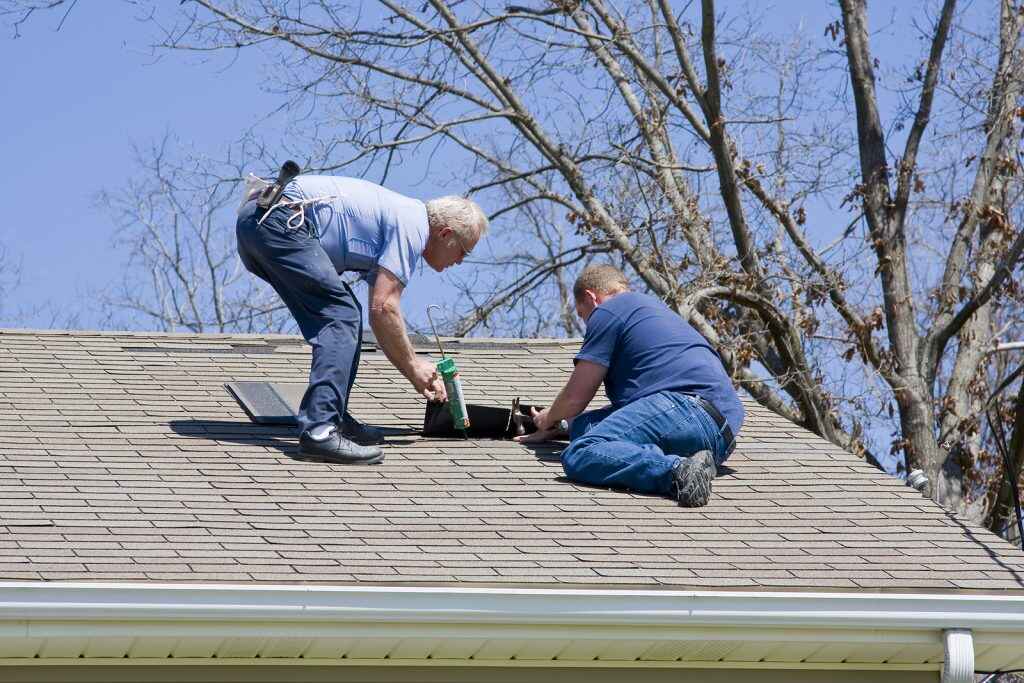Choosing between roof repair and replacement depends on cost, damage severity, and long-term benefits. Repair is typically more budget-friendly and targets specific issues like leaks. Replacement involves installing a new roof and may offer improved durability and efficiency. Evaluating the extent of damage significantly guides the decision. Professional evaluation by roofing technicians will help identify hidden issues. Consider the age of your roof and future property plans to make an informed choice, guaranteeing safety and property value. Making the right decision about your roof ensures its longevity and the protection of your investment.
Cost Comparison
Comparing the costs of roof repair and replacement is essential in determining the most cost-effective solution for addressing roofing issues. Roof repair typically involves fixing specific damages such as leaks, missing shingles, or small areas of damage. These repairs are often less expensive than a complete replacement as they target particular issues without overhauling the entire roof structure. The repair costs can vary depending on the extent of the damage and the materials needed for the job.
On the other hand, roof replacement involves installing a new roof, which can be a more significant investment upfront. However, in cases where the roof has extensive damage or is reaching the end of its lifespan, replacement may be the more practical long-term solution. Factors such as the size of the roof, materials used, and labor costs all contribute to the overall expense of a replacement.
Ultimately, a thorough cost analysis considering the roof’s current condition, the extent of necessary repairs, and the long-term goals for the property is vital in determining whether roof repair or replacement is the more cost-effective option.
Extent of Damage Assessment
Evaluating the extent of damage to a roof is an essential step in determining the necessary repairs or replacements needed to guarantee the structural integrity of the building. Damage assessment involves thoroughly inspecting the roof to identify missing shingles, leaks, water damage, mold growth, and structural weaknesses. It is essential to engage a professional roofing contractor to conduct this evaluation, as they have the expertise to spot visible and hidden damage.
Roof damage can vary in severity, from minor issues that can be easily repaired to extensive damage that may require a complete roof replacement. Factors such as the age of the roof, the type of materials used, and the local climate can all impact the extent of damage present. By accurately evaluating the damage, homeowners and building owners can make informed decisions on whether to opt for repairs or invest in a complete roof replacement to ensure the long-term durability and safety of the structure.
Long-Term Benefits Analysis
When evaluating roof repair versus replacement, conducting a thorough long-term benefits analysis is vital in determining the structure’s most cost-effective and sustainable solution. While roof repairs may seem quick, weighing the long-term advantages of both options is essential.
Although initially more expensive, roof replacement can offer significant benefits over time. A new roof can increase energy efficiency, potentially lowering heating and cooling costs. It can also enhance the property value and improve the overall aesthetics of the building. Additionally, with advancements in roofing materials, a replacement roof can be more durable and require less maintenance, reducing long-term repair costs.
On the other hand, roof repairs may be a suitable option if the damage is localized or minor. However, the long-term consequences must be taken into account. Repairs may only provide a temporary solution and could cost more in frequent repairs over time. Hence, thoroughly analyzing the long-term benefits is crucial in deciding between roof repair and replacement.
Decision-Making Factors
When evaluating the choice between roof repair and replacement, various factors play a significant role in determining the structure’s most cost-effective and sustainable solution. The age of the roof is a vital factor. If the roof is relatively new and the damage is minor, repair may suffice. However, if the roof is nearing the end of its lifespan and experiencing frequent issues, replacement might be more economical in the long run. The extent of the damage is another critical consideration. While small leaks or isolated shingle damage can often be repaired, extensive damage across the roof surface may indicate the need for replacement.
Moreover, the cost of ongoing repairs versus the investment in a new roof should be evaluated. A series of frequent repairs can add up, making a replacement a more financially sound decision. Finally, consider plans for the property. If you intend to sell or renovate shortly, a new roof can increase the value and marketability of the structure. By weighing these factors carefully, you can decide whether to repair or replace your roof.
Other Roofing Tips

1 Comment
Emergency Roof Repairs Strategies | Premier Home Solutions
June 12, 2024[…] Roof Repair vs. Replacement: Making the Right Choice […]